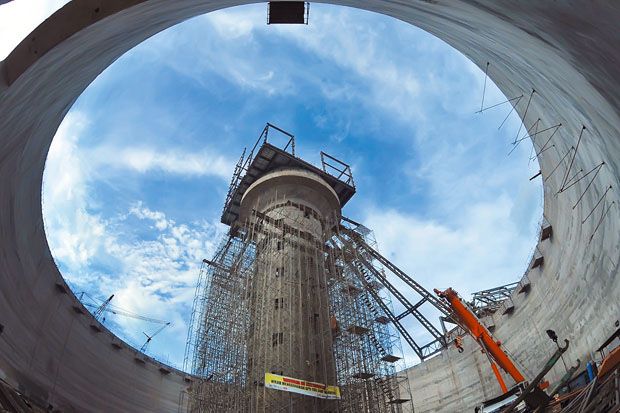Pefindo Upgrades SIG to idAA+ with Positive Market Outlook
JAKARTA - PT Krakatau Semen Indonesia is entering the strategic infrastructure projects in Indonesia with an eco-friendly and economically viable construction product called Ground Granulated Blast Furnace Slag (GGBFS). The production capacity of this product reaches 690,000 metric tons per year.
The President Director of PT Krakatau Semen Indonesia, Bambang Tridoso Oktanto, explained that GGBFS is an eco-friendly and economically viable product for construction. "We believe that the benefits of GGBFS can compete in the market and become a new breakthrough for strategic infrastructure projects in Indonesia," said Bambang in a written statement in Jakarta on Thursday (3/5/2018).
Other advantages of using GGBFS include making concrete and mortar more chemically stable, increasing compressive strength, providing a good surface finish, and brighter colors. "Concrete with GGBFS is very suitable for infrastructure projects such as ports, bridges, roads, and high-rise buildings," he added.
During the workshop, the Director of Infrastructure Investment Development, Ministry of Public Works and Public Housing, Masrianto, and the Head of Hazardous Waste Processing and Utilization Subdivision of the Ministry of Environment and Forestry, Amsor, explained that GGBFS is an environmentally friendly product and no longer requires special permits for its use.
Prof. Iswandi Imran, Head of Industrial Engineering, explained that GGBFS is used to build sturdy and durable concrete structures when combined with Ordinary Portland Cement (OPC) and/or pozzolanic materials. "Furthermore, using GGBFS as a substitute for clinker and OPC raw materials in the production of Portland Slag Cement and Concrete can reduce the production costs of cement/concrete due to its lower price compared to OPC/Clinker," he said.
This project utilizes reliable technology and equipment from LOESCHE Germany. The Slag Grinding Plant PTKSI is designed with a production capacity of 690,000 metric tons per year, with most of it absorbed by PT Semen Indonesia Plant Cigading, while the rest can be absorbed by the ready-mix concrete industry or other cement-based industries.



